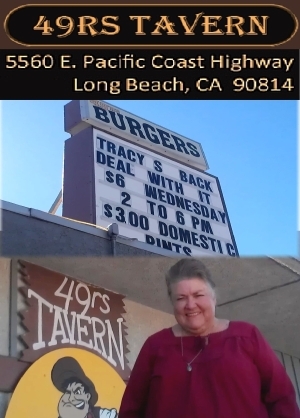
 |
|
Genetically Modified Food (GMO) Labeling Bill Fails (Again) in Sac'to; See Vote Tally, List of Supporters/Opponents & Their Arguments
|
 |
|  VOTE...and watch your vote count on LBREPORT.com's LIVE Election Night Coverage June 3. |
| (May 28, 2014, 3:55 p.m.) -- A bill that would have required (starting Jan. 1, 2016) that any food (except as provided) offered for retail sale in CA "be considered misbranded if it is entirely or partially genetically engineered, as defined, and that fact is not disclosed in a specified manner."
SB 1381 (authored by Sen. Noreen Evans (D., No. Cal coast north of SF) required 21 votes for passage and failed on a MEASURE: SB 1381 AUTHOR: Evans TOPIC: Food labeling: genetically engineered food. DATE: 05/29/2014 LOCATION: SEN. FLOOR MOTION: Senate 3rd Reading SB1381 Evans (AYES 19. NOES 16.) (FAIL) AYES **** Beall Corbett De León DeSaulnier Evans Hancock Hueso Jackson Lara Leno Lieu Liu Mitchell Monning Padilla Pavley Steinberg Torres Wolk NOES **** Anderson Berryhill Block Cannella Fuller Gaines Galgiani Hernandez Hill Huff Knight Morrell Nielsen Vidak Walters Wyland NO VOTE RECORDED **************** Calderon Correa Roth Wright Yee Three Dem Senators weren't present as they were on paid leaves awaiting sentencing on felony convictions (Wright) or awaiting trial on alleged felonies (Yee and Calderon.) SB 1381, which never reached the Assembly, would have prescribed labeling requirements for a raw agricultural commodity that is genetically engineered and packaged foods, as it defined, containing some products of genetic engineering. The bill would impose these labeling requirements on manufacturers and retailers, as it defined, of the commodities and foods. To view the full text of the bill, click here. Below is a list of supporters and opponents from a state Senate legislative analysis: SUPPORT: (Verified 5/23/14) Alliance for Natural Health Bayliss Botanicals Biosafety Alliance Black Women for Wellness Breast Cancer Action California Certified Organic Farmers California Farmers' Markets Association California Institute for Rural Studies California Nurses Association CalPIRG Californians for Pesticide Reform California State Grange Center for Environmental Health Center for Food Safety Children of Vietnam Veterans Health Alliance Clean Water Action Committee for a Better Shafter Communities for a New California Community Alliance with Family Farmers Consumers Union County of Mendocino Culver City Democratic Club Delano Guardians Ecological Farming Association Environment California Environmental Working Group Food & Agriculture Caucus of the Democratic Party Food & Water Watch Food Democracy Now! Food Empowerment Project Friends of the Earth Global Community Monitor Good Earth Organic & Natural Foods Green America Greenfield Walking Group Harmony Art Hooked Health and Wellness Club Keena's Kitchen LabelGMOs.org La Rocca Vineyards Moms Advocating Sustainability Organic Consumers Association Pesticide Action Network Pesticide Watch Physicians for Social Responsibility (Sacramento and San Francisco chapters) Planned Parenthood of California Planting Justice Rancho de los Proyectos Rural Communities Resource Center Sacramento Community Grange #843 Santa Monica City Councilmember Kevin McKeown Sierra Club California Silo's Slow Food California Sustainable Carmel Valley Unitarian Universalist Church of Monterey Peninsula United for Change in Tooleville United Native Americans Inc. Wild Farm Alliance OPPOSITION: (Verified 5/23/14) Agricultural Council of California Almond Hullers and Processors Association BAYBIO BIOCOM Biotechnology Industry Organization Butte County Farm Bureau California Alfalfa & Forage Association California Bean Shippers Association California Citizens Against Lawsuit Abuse California Chamber of Commerce California Citrus Mutual California Cotton Ginners Association California Cotton Growers Association California Farm Bureau Federation California Grain & Feed Association California Grocers Association California Healthcare Institute California League of Food Processors California Manufacturers and Technology Association California Retailers Association California Seed Association California State Floral Association California Taxpayers Association California Warehouse Association California Women for Agriculture Chamber of Commerce of the Santa Barbara Region Chambers of Commerce of Ventura and Santa Barbara Counties Consumer Healthcare Products Association Farmworker Justice Fullerton Chamber of Commerce Greater Bakersfield Chamber of Commerce Grocery Manufacturers Association International Formula Council Los Angeles Area Chamber of Commerce Monterey County Farm Bureau Pacific Egg & Poultry Association San Joaquin Farm Bureau Federation Santa Barbara County Farm Bureau Southwest California Legislative Council Tulare County Farm Bureau Valley Industry & Commerce Association Western Agricultural Processors Association Western Growers Western Plant Health Association Yolo County Farm Bureau Below are arguments for and against as summarized in the Senate legislative analysis: ARGUMENTS IN SUPPORT: blog comments powered by Disqus
Contact us: mail@LBReport.com |
 Click for VIDEO and see how Diversified Threat Management private security can help protect your neighborhood and your business. Affordable group rates available.  Need A Plumber, NOW? DrainPros Does It All; Click This Text To See Their Many Services AND Click Below To See Their Current Specials                Hardwood Floor Specialists Call (562) 422-2800 or (714) 836-7050  |
Contact us: mail@LBReport.com